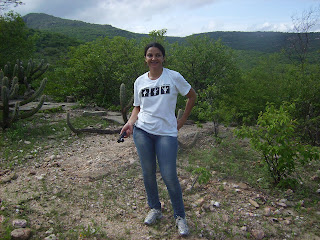Check out the website http://www.ingvip.com
Source: Inglês vip
Julia: Hello. I’m Julia, I write for my Office’s newspaper.
Guy: Hello, Julia, it’s nice to talk with you(1).
Julia: Where do you work?
Guy: I work at a radio station called(2) “Open Air”.
Julia: That’s in my city!
Guy: Really!? Would you like to be one of the guests of the show? Tomorrow we are having young people to discuss the difficulties of getting a job(3).
Julia: Of course, I can bring a friend of mine(4).
Teacher: Hello guys. What are you doing here? I thought everybody was home(5)!
Julia: Oh, Hi boss. We were doing some research(6) on the internet, but we are leaving(7) now.
Teacher: Oh, the internet. All my students love the internet. But let me give you an advice(8). Try(9) to look for(10)information on reliable(11) sites. All right I have to go. I just dropped by(12), to see if the lights were on(13).
Julia: Guess what!(14) We are going to a radio station tomorrow.
Teacher: Why are you going to a radio station ?
Teacher: Why are you going to a radio station ?
Pedro: Because we were invited(15) to be one of the guests(16) in a program!
Teacher: Hum! That’s exciting(17)! I have one sister who(18) works in a radio station. It is on the east part(19) of the city. It is called Open Air.
Vocabulary
1. It's nice to talk with you = É um prazer falar com você
2. Called = chamado(a)
3. Getting a job = conseguir um emprego
4. A friend of mine = um amigo meu
5. I thought everybody was home = Eu achei que todos estavam em casa
6. Research = Pesquisa
7. Leaving = saindo
8. Advice = conselho
9. Try = tentar
10. Look for = procurar
11. Reliable = confiável
12. I just dropped by = eu só "dei uma passada"
13. If the lights were on = Se as luzes estavam acesas
14. Guess what! = "adivinha só!"
15. We were Invited = nós fomos convidados
16. Guests = convidados
17. Emocionante =
18. Who = que
19. East part = parte leste
1. It's nice to talk with you = É um prazer falar com você
2. Called = chamado(a)
3. Getting a job = conseguir um emprego
4. A friend of mine = um amigo meu
5. I thought everybody was home = Eu achei que todos estavam em casa
6. Research = Pesquisa
7. Leaving = saindo
8. Advice = conselho
9. Try = tentar
10. Look for = procurar
11. Reliable = confiável
12. I just dropped by = eu só "dei uma passada"
13. If the lights were on = Se as luzes estavam acesas
14. Guess what! = "adivinha só!"
15. We were Invited = nós fomos convidados
16. Guests = convidados
17. Emocionante =
18. Who = que
19. East part = parte leste















